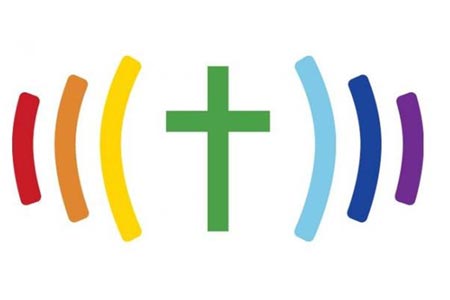A series of workshops in the next few months is aiming to advance LGBT inclusion in faith communities.
The “Building an Inclusive Church” initiative will stage four training events in Pennsylvania, including a Feb. 20-21 workshop in King of Prussia. The program has been staged for several years by the National LGBTQ Task Force and has included events in Pennsylvania, but this year’s local lineup is more targeted and coordinated, organized in partnership locally with Equality Pennsylvania.
“We have a grassroots operation now trying to raise awareness about the discrimination that LGBT people face, and one of the parts of that program is to raise faith support,” said Ammon Ripple, statewide faith organizer for Equality PA. The organization’s Faith Action Teams are working with 600 clergy members and 1,000 lay people from 20 denominations across the state to rally support for ending LGBT discrimination.
Part of that effort, Ripple said, is encouraging conversations among congregations about LGBT issues.
“A lot of congregations are choosing not to talk about LGBT issues because it could be controversial, so this program is designed to help start people talking in an organic, healthy way that doesn’t cause conflict or division,” he said. “It’s meant to help the congregation decide how to become more welcoming of LGBT people.”
The workshops are open to both clergy and lay leaders and anyone else in a faith community eager to help advance LGBT equality.
“It’s for anyone who has a heart for justice for LGBT people and is willing to do something about it,” Ripple said. “It’s sometimes helpful if clergy or elected lay leadership attend, but oftentimes it may be a group of people with a heart for the work who come to the training and then go back and serve as a core team inside their congregation, and there they start having the one-on-one conversations.”
Workshop attendees are also able to take the lessons learned from the program beyond the walls of their church, Ripple said. They are encouraged to form interfaith coalitions to help raise LGBT awareness and acceptance in their communities.
“They can use the same skills, tools and processes they learn at the workshops to build interfaith coalitions to work in the community to make lives better for LGBT people in a practical way,” he said. “That might involve clergy or faith leaders talking to a homeless shelter to encourage them to have more affirming policies, or asking for a meeting with a social-services agency around adoptions — things where people may be falling through the cracks, and the clergy group can make a difference.”
Workshops are scheduled for March 6-7 in Harrisburg, May 1-2 in Pittsburgh and May 15-16 in Kingston. Ripple said the organization is considering hosting more in other cities in the future.
There is also a plan to host a “train the trainers” type of workshop, to equip more people to lead the events.
The effort to enlist communities of faith in the fight against discrimination got a big boost last week, when all five bishops representing the Episcopal dioceses in Pennsylvania signed a statement of support for House Bill 300, which would protect LGBT people from discrimination in the state.
Ripple noted that Equality PA has also garnered similar statements of support from more than a dozen individuals at the level of bishop in different denominations.
“It’s very important to have this letter from these five bishops, as well as from the others who have signed on an as individuals,” he said. “To take a stand together like that to show the church it’s the right thing to do is very significant.”
While a number of faith communities have revised policies and rules regarding LGBT inclusion and affirmation in recent years, Ripple noted that it’s changing hearts and minds that will make the most lasting impact — and many people in faith communities are already willing to evolve.
“This is a generation’s worth of work; we can change the rules, but you have to change the lived experiences of people. One of the things I’ve learned is that there are many more accepting and affirming people than many people think in faith communities, a lot just don’t have the language for it,” he said. “They don’t understand how to counteract the things they’ve heard from other places that are not affirming. But when they start to do Bible or Torah studies and they begin to open up to the idea that you can be a faithful Christian or Jew or Unitarian and still have an affirming stance, I’ve found that most are choosing to do that because they know that’s the right thing to do.”
For more information on the upcoming workshops, visit http://welcomingresources.org/communityorg.htm.
